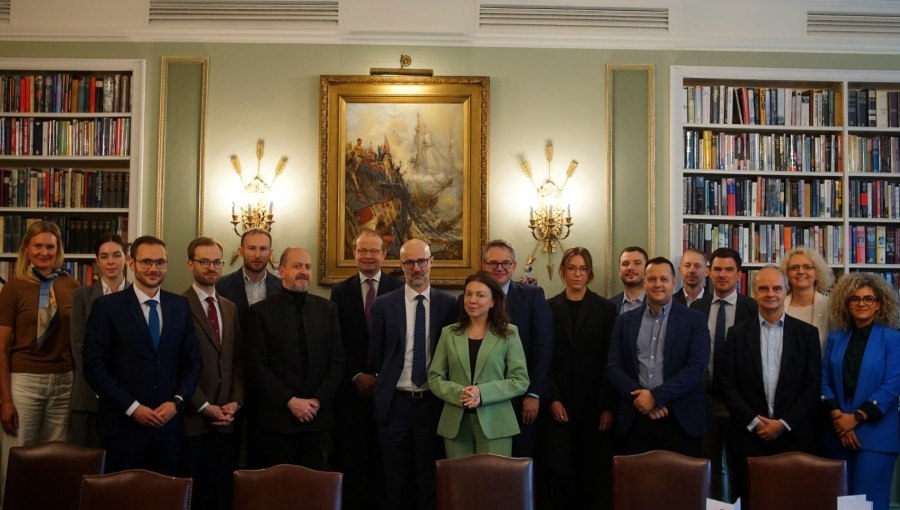Spirituality of Urban Indian Women: JCU Welcomes Professor Renuka Singh
The JCU Institute of Future and Innovation Studies, in collaboration with Cortona Week, had the honor of welcoming Professor Renuka Singh, who presented the lecture “Spirituality of Urban Indian Women,” on September 25, 2021. The lecture was the sixth in the “Cortona Pearls” series, which tackles systemic questions related to the scientific and human challenges of our time.
Professor Singh is a Sociologist from the Centre for the Study of Social Systems, School of Social Sciences, Jawaharlal Nehru University, New Delhi. Francesco Lapenta, the Director of the Institute, and Professor Pier Luigi Luisi, the founder of Cortona Week, introduced Professor Singh’s lecture and the following round-table discussion. The event was moderated by JCU Professor Ieva Jakobsone Bellomi, with session respondents being Professor Luisa Damiano (Ph.D.), Beate Kortendieck-Rasche (Ph.D.), and Hortense Reintjens (Ph.D.).

Sunset in Cortona by Antonio Cinotti
Professor Singh shared the findings from her book Women Reborn: Urban Women’s Experiences with Spirituality (Penguin, 1997). Historically, research on female spirituality was focused on women from religious backgrounds or women as objects of devotion. Professor Singh’s research brings attention to the spirituality of urban secular women. As she put it, “nobody looked at what spirituality means for these women, whether it is a source of strength or a defense mechanism against aggressive social structures.” Professor Singh highlighted that “it is important to see these women as both subjects and agents of change.”
Professor Singh linked her research to the economic transformation of the 1990s, when India opened up to western style capitalism. This allowed for a lot of urban women to become financially successful, but as Professor Singh reported, “these so-called successful women still did not feel liberated nor happy.” Professor Singh noticed that while rural women seemed more empowered, urban women seemed to lack something. She realized that urban women were starting to actively seek out spirituality. She conducted a series of interviews, where she encouraged her interviewees to take on an autobiographical narrative approach of seeing themselves as both the character and author. Professor Singh wanted to “focus on the experiential dimension and highlight the specificity of the subject to reveal the power of the individual voice.”
The model of approaching spirituality that emerged from Professor Singh’s research is different for women and men. Whereas men tend to withdraw from regular life to fully focus on spirituality, women often develop spirituality though daily tasks, education, career, family life, and even suffering. Professor Singh added that in her interviews women connected the transcendence of sexuality to spiritual experience. Spirituality was crucial for them in resolving the dilemma of the negative image of sexuality. Another element of the spiritual development was women’s relationship with the guru. This search for a guru, as Professor Singh expressed, originates in tradition but has been modernized. She explained that “today both you and your guru are educated, both of you use modern communications technology to stay in touch.” Professor Singh gave an example of a successful businesswoman she interviewed, who saw the meeting with her guru and the following spiritual development as life-changing, improving every aspect of her life.
With India’s economic change modelled on western capitalism, the country is also going through a process of secularization. However, the way that Indian women perceive this process of modernization is rooted in tradition, Professor Singh explained. The major difference is the sheer understanding of secularization; “Secularization in the West has a different connotation than in India. Secularization in the West is areligious, whereas in India being secular means that you can follow any religion you want.” Professor Singh argued that the western model served very well in terms of prompting women to seek economic and political empowerment through education and training. “But it is not enough for India,” she added. Indian people believe not only in the capitalistic model, she argued, but they also aspire to a “bottom-up approach,” to a more equitable society where empowerment spreads equally.
The perception of science and spirituality in India, Professor Singh added, is also different from the western perspective. She explained that there exist three models that define the relation between science and spirituality in a distinct way. The first model follows a stance similar to that of the western view, in that science is very different from spirituality. According to the second model, science and spirituality are competing with each other. The third model assumes that science and spirituality are complementary, and even go hand in hand. “The model depends on how one wants to approach both science and spirituality,” Professor Singh added. She further argued that spirituality and science should not be perceived as opposing. “The Dalai Lama has been having many dialogues with scientists, he thinks that science and spirituality can go hand in hand, science can learn a lot from spirituality, and spiritual people can learn a lot from science,” she explained.
Professor Singh concluded by sharing her prediction on what obstacles the future generation of Indian women will have to face. She expressed that in the challenging post-pandemic time and the widespread desire to be ‘successful,’ it is crucial to adapt one’s inner strength in order to relate to external pressure. She explained that “no amount of external empowerment will ever satisfy you fully, until you are at peace with yourself. Freedom is good, but so is happiness… this is my formula, happiness and freedom. However, each person has to work out their own formula.”
Professor Renuka Singh has been working in the field of Gender Studies, Diaspora and Buddhist Studies for over four decades and travels extensively delivering lectures at various seminars and Universities abroad. She has been associated with the Women’s Studies Centre, Delhi University, the Centre for Social Research, and was Research Fellow at the Centre for Cross-Cultural Research on Women at Oxford University. She was also a Senior University Grants Commission (UGC) Fellow and is currently the Director of the Tushita Mahayana Meditation Centre, New Delhi, and the Chairperson of Punjabi Sahitya Sabha, New Delhi. She has authored and edited several articles and books that have been translated into many languages. Some of the titles are: The Womb of Mind, Women Reborn, The Path to Tranquility, The Transformed Mind, Many Ways to Nirvana, The Path of the Buddha, Becoming Buddha, Dalai Lamaʼs Little Book of Buddhism, Dual Identity: Indian Diaspora and Other Essays, Boundless As the Sky, and Dalai Lamaʼs Little Book of Mysticism.
(Natalia Stanusch)





